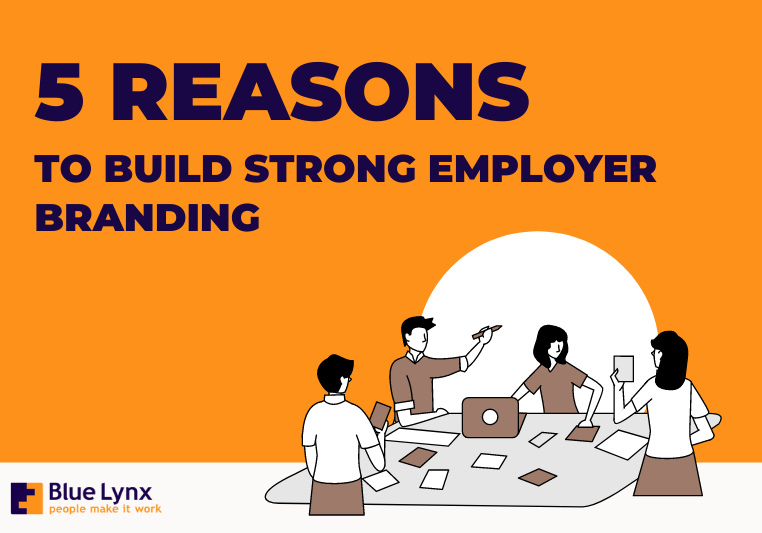Job interviews can be nerve-wracking experiences, and even the most qualified and prepared candidates may encounter unexpected challenges.
An astonishing 98% of job applicants fail in their interviews. On average, each job posting attracts 250 applications, and employers typically interview a maximum of 10 candidates or 2-3% of the total applicants.
From arriving late to forgetting to turn off your phone, there is a multitude of things that can go wrong during an interview. Additionally, misunderstandings with the interviewer or a lack of preparation can also contribute to a less-than-ideal interview experience. It’s important to be aware of these potential pitfalls so you can take steps to minimise the risk and make a positive impression during the interview process.
But don’t worry – we’ve got your back – here are 7 things that can go wrong in a job interview and how to handle them.
Being Late:
Arriving late to a job interview sends a negative message to the interviewer, indicating a lack of punctuality and professionalism. Make sure to plan and arrive at least 10-15 minutes before the scheduled interview time.
Here are some tips to help prevent being late for a job interview:
- Plan Ahead
Make sure to plan your route and allow enough time for unexpected delays, such as traffic or public transportation issues. Check the location of the interview beforehand and consider leaving early to account for any unexpected problems.
- Set Reminders
Use your phone or another device to set reminders for the interview. This can help ensure that you don’t forget the time or date of the interview.
- Communicate in Advance:
If you think you may be late, communicate with the interviewer as soon as possible. Explain the situation and apologise for any inconvenience. Offer to reschedule if necessary.
- Be Prepared for Delays:
In case of unexpected delays, consider bringing a book or other activities to help pass the time. This can also help keep you calm and focused during any wait.
- Show up Early
If possible, aim to arrive at least 10-15 minutes early. This can help give you time to collect your thoughts, review your notes, and be ready for the interview when it starts.
Following these tips will ensure that you make a positive impression during your interview and have a positive headstart.
Poor Body Language
Communication in its nature is primarily nonverbal, therefore poor body language can have a significant impact on the outcome of a job interview. The way we interpret speech is only 7% verbal and the rest is composed of vocal (38%) and visual (55%) cues. This implies that 93% of the message is conveyed through nonverbal means. Here are some positive and negative body language examples and valuable tips to impress your hiring manager at your next job interview:
- Maintain Eye Contact
Maintaining eye contact with the interviewer shows that you are paying attention and are confident. Avoid looking away, staring at the floor or ceiling, or appearing distracted.
- Sit Up Straight
Good posture conveys confidence and professionalism. Sit up straight in your chair, avoid slouching, and maintain an open and relaxed body posture.
- Avoid Nervous Habits
Nervous habits such as fidgeting, playing with your hair or clothes, or tapping your foot can detract from your interview performance. Take deep breaths and try to relax, and avoid any actions that may be distracting.
- Smile
The average smile rate varies greatly among individuals. Approximately 30% of people smile an average of 20 times a day, while fewer than 14% smile less than five times a day.
A smile can help put both you and the interviewer at ease and convey a positive attitude. Smile when appropriate, and avoid appearing tense or serious.
- Use Gestures
Gestures can help emphasise your points and make you appear more engaging. Use gestures when appropriate, but avoid overdoing them or appearing too animated.
- Match the Interviewer’s Body Language:
Observe the interviewer’s body language and try to match it as much as possible. This can help create a sense of rapport and make the interview feel more relaxed and natural.
Not Researching the Company
Not knowing anything about the company or its products can make you appear unprepared. Do your research and preparation beforehand and be ready to discuss what you have learned about the company and its culture.
Failing to research the company before a job interview can be a major mistake, as it can indicate a lack of interest in the company or the position.
Here are 5 important details that you want to know about a company before joining. This will ensure that you are well-prepared for your job interview.
- Review the Company Website
Start by visiting the company’s website and reading about its history, mission, and values. Pay close attention to the products or services they offer and the industries they serve.
- Research the Position
Familiarise yourself with the job description and requirements, and think about how your skills and experience align with the position.
- Read Company News and Press Releases
Stay up to date on the company’s recent news and developments by reading press releases and articles about the company. This can give you a better understanding of the company’s direction and goals.
- Prepare Questions
Prepare a list of questions to ask during the interview, including questions about the company culture, opportunities for growth and development, and the company’s plans for the future.
- Network with Employees
LinkedIn was established in 2003, making it close to 20 years old. While many of the older social media platforms are witnessing a decline in popularity or have ceased to exist, LinkedIn stands out as the longest-standing top social media platform that users visit regularly.
It’s good practice to reach out to current or former employees and ask about their experiences working at the company. This can provide valuable insight into the company culture and the day-to-day work environment.
Failing to research the company before a job interview can make a poor impression and detract from your interview performance. By taking the time to review the company website, research the position, read company news, prepare questions, and network with employees, you can demonstrate your interest in the company and help make a positive impression during the interview.
Being Negative
Being negative during a job interview can be a major mistake, as it can convey a negative attitude and potentially harm your chances of getting the job.
Try focusing on the positive. Instead of dwelling on past experiences or difficulties, focus on highlighting your strengths and the positive aspects of your experience and skills. Emphasise how you can bring value to the company and contribute to its success. Make sure you avoid complaining about past employers, coworkers, or situations. This can convey a negative attitude and make the interviewer question your ability to work well with others.
Pay attention to the interviewer’s questions and responses, and avoid interrupting or speaking over them. Do you think you’re a good listener? The average person typically retains only 17% to 25% of what they hear. Show that you are engaged and interested in the position. You can do so by asking thoughtful questions and demonstrating your understanding of the company’s needs.
Final note – show enthusiasm for the opportunity to interview for the position and the company. Express your excitement about the opportunity to contribute and grow with the company. By focusing on the positive, avoiding complaining, and staying professional, you can help make a positive impression and increase your chances of success.
Not Asking Questions
Not asking questions during a job interview can be a missed opportunity to learn more about the company and the position, and can also indicate a lack of interest in the role. Here are some tips to help ensure that you are well-prepared and engaged during your job interview:
Take the time to prepare a list of questions in advance, including questions about the company culture, opportunities for career growth and development, and the company’s plans for the future. This can demonstrate your interest in the role and help you gain a better understanding of the company.
Asking questions about the responsibilities and expectations of the role, and how it fits into the company’s overall strategy demonstrates genuine interest in the position. Show that you mean business and have thought about how you can contribute to the future success of the organisation.
If you are unsure about any aspect of the job or the company, don’t be afraid to ask for clarification. This can help you understand the role and the company better, and can also show that you are detail-oriented and proactive.
Being Overly Casual
Being overly casual during a job interview can convey a lack of professionalism and seriousness about the role. Moreover, it can potentially harm your chances of getting the job.
The significance of first impressions is well documented. A recent survey conducted by the Science of People Research Lab showed that 95% of the 209 participants believe that first impressions hold great importance. The results speak for themselves.
If you aim to make a positive impression, be sure to dress appropriately for the role and be well-groomed. Show good manners by avoiding slang or overly informal language during the interview. Use professional and respectful language, and be mindful of your tone and body language. Avoid being too familiar with the interviewer, and avoid making personal comments or jokes that could be perceived as inappropriate. Maintain a professional and respectful demeanour throughout.
Speaking of making a good first impression one of the hallmarks of a reliable new hire is showing respect to the hiring manager and the company by being punctual, polite, and attentive. Avoid checking your phone or being distracted during the interview.
Language barriers
Before the interview, take the time to improve your language skills. This can include taking classes, reading books or articles in the language, or practising with a tutor or language exchange partner. Be sure to familiarise yourself with the company’s culture and values and try to understand the language used in their industry. This can help you feel more confident during the interview and improve your ability to communicate effectively.
Pro tip: If you don’t want your nerves to get the very best of you, before the interview, practice answering common questions in the language you will be talking in. This can help build your confidence and reduce nervousness.
A positive and confident attitude can go a long way in overcoming language barriers. Stay calm and focused, and don’t let language difficulties discourage you. If you don’t understand a question or if there is a miscommunication, don’t be afraid to ask for clarification. This can help ensure that you and the interviewer are on the same page. Moreover, it shows that you are inquisitive and humble rather than coming across as arrogant and incompetent.
To sum it up
A job interview is a crucial step in securing employment, and it’s natural to feel nervous. The good news is that you don’t have to go through it alone! With these curated tips for preparation and understanding potential pitfalls, we aim to help you avoid mistakes and increase your chances of success.
Some of the things that can go wrong include arriving late, not being familiar with the company, poor body language, poor attire, negative attitude, lack of enthusiasm, not asking questions, and talking too much or too little. Being aware of these mistakes and taking steps to avoid them, can increase your chances of impressing the interviewer and securing the job.
Preparation is a key factor in achieving success in any endeavour, and this is especially true in job interviews. Taking the time to research the company, familiarise yourself with the job responsibilities and requirements, and practice your responses to common interview questions can greatly increase your confidence and impress the interviewer.
Additionally, preparing a list of questions to ask can demonstrate your interest in the company and help you make a positive impression. By being fully prepared, you can demonstrate your professionalism and enthusiasm for the job, making you a strong candidate for the position. In short, preparation is essential in making a lasting and positive impact in a job interview.




![Not researching the company [Title]](https://bluelynxcareers.bg/wp-content/uploads/2023/02/4-1-300x300.png)



![Language barriers [Title]](https://bluelynxcareers.bg/wp-content/uploads/2023/02/8-300x300.png)



![Education vs. experience [Title] Job requirements: Education vs. experience](https://bluelynxcareers.bg/wp-content/uploads/bb-plugin/cache/Job-requirements-education-vs-experience-landscape-1ec43d95a48ad704bd7217ec829c042f-.png)


![Unlocking the Connection between Sleep, Work, and Productivity The Importance of Quality Rest for Optimal Performance [Title] Unlocking the Connection between Sleep, Work, and Productivity The Importance of Quality Rest for Optimal Performance](https://bluelynxcareers.bg/wp-content/uploads/bb-plugin/cache/Unlocking-the-Connection-between-Sleep-Work-and-Productivity-The-Importance-of-Quality-Rest-for-Optimal-Performance-landscape-2b91ccd746800d863e8c65276c6876c9-.png)
![Attracting Talent and Driving Innovation The Role of Sustainability in Modern Business [Headline] Attracting Talent and Driving Innovation The Role of Sustainability in Modern Business [Headline]](https://bluelynxcareers.bg/wp-content/uploads/bb-plugin/cache/Attracting-Talent-and-Driving-Innovation-The-Role-of-Sustainability-in-Modern-Business-landscape-7f26c9342f1650800e5633d1b4424d68-.png)

![Toxic productivity [Title] Toxic productivity](https://bluelynxcareers.bg/wp-content/uploads/bb-plugin/cache/Toxic-productivity-landscape-ce165975805cbbc4b58e4c23cf758014-.png)